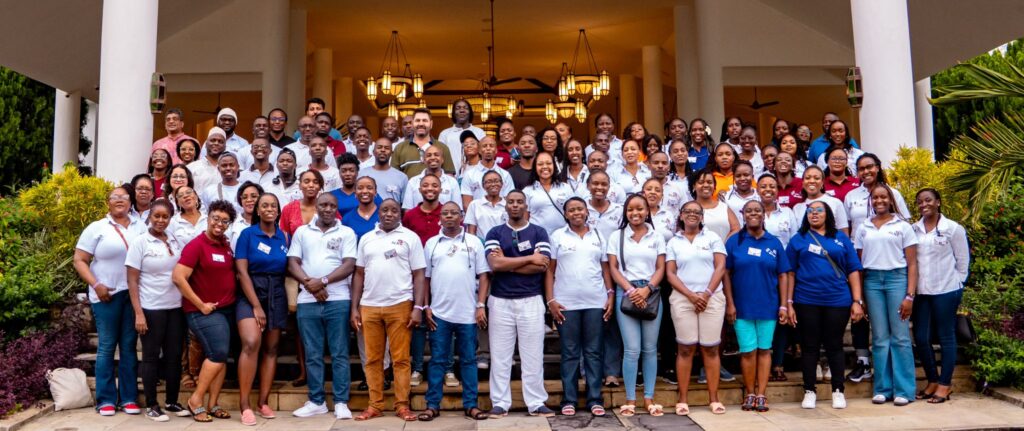Africa Business News 2024
Kenya
Consumers and private energy players to get seats on Epra board
A proposal from Kenya’s National Assembly Departmental Committee on Energy seeks to amend the Energy Act 2019, enabling consumers, labor unions, industry experts, and private energy stakeholders to nominate representatives to the board of the Energy and Petroleum Regulatory Authority (Epra). This move aims to make the decision-making body more inclusive and responsive to the needs of diverse energy sector players. The proposal is under parliamentary review and could significantly shift the governance landscape of Kenya’s energy regulation.
Source: Business Daily
SHA, Finance Bill top Google’s most popular searches in 2024
Google’s “Year in Search” list for Kenya highlights that the Social Health Authority (SHA) and Finance Bill 2024 sparked the most interest among Kenyans this year, a new report has revealed.
These contentious topics led to widespread national debates, with citizens actively opposing the SHA’s introduction and proposed tax law changes in the Finance Bill. Public outcry, including youth-led protests, resulted in the withdrawal of the Finance Bill 2024.
Additionally, the U.S. presidential election ranked as the third most searched topic, reflecting global interest.
Source: Business Daily
Kenya to go after foreign data privacy violators
Kenya is ramping up efforts to enforce its data protection laws by collaborating with foreign governments. The Data Protection Commissioner, Immaculate Kassait, announced plans to establish Mutual Legal Assistance (MLA) agreements, enabling cross-border cooperation in prosecuting privacy violations. The focus is on multinational companies operating in Kenya but storing data on foreign servers. This initiative aligns with the country’s increasing penalties for non-compliance with local data privacy regulations.
Source: Business Daily
Kenyan healthcare system index score rises 14.2 points in five years
Kenya’s healthcare system index, as tracked by global research database Numbeo, has improved by 14.2 points over the last five years. This significant progress reflects enhancements in health outcomes, access to medical services, and overall healthcare infrastructure. The index evaluates key factors, including disease prevention, treatment efficacy, and system responsiveness, indicating ongoing improvements in Kenya’s public health sector.
Source: Business Daily
Uganda
EU softly financing Uganda’s 52-gigawatt electricity goal
Uganda’s ambitious goals for energy will get a boost from the European Union, which is backing the country’s quest for universal electricity access. Uganda is seeking to have 52-gigawatt of electricity by 2040 from the current two gigawatt to power growth prospects, infrastructure projects, and industrial parks. The EU is not just cheering from the sidelines- its leveraging its Global Gateway Strategy, £300m plan to bridge infrastructure investment gaps worldwide. Half of this is earmarked for sub-saharan, and Uganda is a star player.
Over the past five years, the EU has funeled £200 in grants into the Uganda’s energy sector, in partnership with the E
Source: Monitor
Ugandan envoys woo Chinese investors to tap into ‘thriving economy’
The Ugandan government has introduced a range of incentives and support programs to attract investment, including tax exemptions, duty waivers, and simplified processes for foreign investors. Efforts to upgrade infrastructure, such as roads, railways, and ports, are also underway to improve connectivity and logistics.
As part of its investment drive, Uganda has invited Chinese investors to explore its growing economy and diverse opportunities. Speaking at the Uganda-China Investment Conference, Ms. Judyth Nsababera, Uganda’s Consul General, emphasized the country’s strategic location, abundant natural resources, and skilled workforce as key advantages for foreign investors.
Source: Monitor
USE begins drafting ESG in listed companies’ reporting frameworks
The Uganda Securities Exchange (USE) is working to adopt environmental, social, and governance (ESG) principles into its operational framework. This initiative aims to align Uganda’s financial sector with global sustainable investment trends while providing guidance for the 11 locally listed companies on leveraging this shift. USE CEO Paul Bwiso highlighted that the guidelines prioritize key areas such as carbon emissions, energy efficiency, waste management, water usage, and biodiversity preservation.
To evaluate these aspects, ESG rating systems are commonly used, and USE has collaborated with the Global Reporting Initiative (GRI) to strengthen sustainability reporting practices among local businesses.
Source: Monitor
Tanzania
Tanzania-Kenya power interconnection: Key milestone for integration
Tanzania has made a major advancement in its integration into the Eastern Africa Power Pool (EAPP) with the initiation of trial operations for the Tanzania-Kenya power interconnection project. This project is designed to enable efficient electricity exchange among East African nations, reduce energy production costs, and promote regional energy trade.
The interconnection runs from the Isinya substation in Kenya’s Kajiado County to Arusha in Tanzania, continuing from Arusha to Singida via Babati. This development is expected to increase energy availability and lower power costs across the region. Additionally, the Kenyan segment will extend to Ethiopia, while the Tanzanian line will connect to Zambia, creating a link between the EAPP and the Southern African Power Pool (SAPP).
Source: The Citizen
Tanzanian Shilling continues with steady gains against major global currencies
The Tanzanian shilling has maintained its strong performance against major global currencies, with the US dollar seeing a notable depreciation. According to the Bank of Tanzania (BoT), the shilling was quoted at TZS 2,513.12 per US dollar earlier in the year but had strengthened to TZS 2,294 by December 13, 2024—the lowest exchange rate recorded this year.
In addition to its gains against the dollar, the shilling also appreciated against the euro and the British pound, trading at TZS 2,406 and TZS 2,919, respectively.
Source: The Citizen
Tanzania’s SEZs attract interest from Dubai investors
A delegation from the Dubai Chamber of Commerce is visiting Tanzania to explore investment prospects, particularly within the country’s Special Economic Zones (SEZs). The Export Processing Zones Authority (EPZA) has praised the visit as a significant step in highlighting Tanzania’s potential as a centre for industrial and economic development.
According to EPZA Director General Charles Itembe, Tanzania is increasingly recognized as a secure and attractive destination for manufacturers targeting global markets. He also emphasized ongoing efforts to expand SEZs in strategic areas, including Bagamoyo, Dodoma, Tanga, Kwala, and Kigoma. The Bagamoyo SEZ, in particular, is expected to accommodate over 2,000 industries, presenting significant opportunities for private sector investment in infrastructure and manufacturing.
Source: The Citizen
Rwanda
What Rwandan SMEs expect from $10bn AfCFTA Fund in 2025
Rwandan small and medium-sized enterprises (SMEs) are urging the African Continental Free Trade Area (AfCFTA) Adjustment Fund to prioritize financing agro-processing projects, particularly those led by women and youth. Established in 2023, the fund aims to assist African governments and private sector players in leveraging preferential trade tariffs under AfCFTA. Disbursements are set to begin in 2025, with a primary focus on supporting manufacturing activities.
Headquartered in Rwanda, the fund seeks to help governments and businesses adapt to trade liberalization, drive growth, and capitalize on opportunities within the AfCFTA market. In March 2023, the AfCFTA Secretariat and the African Export-Import Bank (Afreximbank) formalized the Host Country Agreement for the fund with the Rwandan government.
With an initial $1 billion mobilized and plans to raise an additional $10 billion, the fund is supported by contributions from governments and the private sector. Rwanda has demonstrated commitment to resource mobilization and fostering public-private partnerships to fully utilize the fund’s potential.
Meanwhile, the East African Business Council (EABC), in partnership with the European Union Technical Assistance Facility (EU-TAF), is equipping Rwandan SMEs with skills in the AfCFTA Guided Trade Initiative, Adjustment Fund, and Value Chain Integration. These efforts aim to help SMEs access the AfCFTA market and boost exports, which reached $306 million in 2023.
Source: The New Times
Rwanda boosts maize drying, and storage facilities to cut post-harvest losses
Agriculture officials in Rwanda are working to minimize post-harvest losses in the maize value chain by improving drying and storage facilities and connecting farmers to dependable markets. Gilbert Rwagange, the Rwanda Agriculture Board (RAB) Station Manager for Ngoma District, highlighted preparations for the 2025 Season A maize harvest, running from September to February. He noted that efforts are underway to identify high-yield areas and allocate resources to address existing challenges in harvesting and drying operations.
According to Rwagange, they have pinpointed potential production areas to provide support materials like mechanical dryers and are partnering with farmers to construct temporary drying shelters.
Nationwide, Rwanda uses 52 mobile dryers, 24 of which are operated by RAB. Each dryer can process up to 30 tons of maize daily through three drying cycles, each lasting three hours. These dryers are crucial for expediting the drying process and ensuring that the maize is ready for market distribution.
Source: The New Times
Digital transformation poised to transform tax administration
Utilizing digital technologies to enhance tax collection, fight tax fraud and evasion, and strengthen international collaboration to tackle cross-border tax issues is essential in today’s changing tax environment. Rwanda is already embracing technology to modernize its tax administration, improving both efficiency and effectiveness.
In 2011, the country introduced an electronic tax system that streamlined tax filing and payment processes, reducing errors and easing administrative burdens. The launch of Electronic Billing Machines (EBMs) in 2013 further improved VAT compliance and helped reduce tax evasion. The system was later upgraded to capture real-time data and strengthen fraud prevention. According to the Rwanda Revenue Authority (RRA), these reforms have led to increased VAT and income tax collections and improved compliance. Domestic revenue now covers over 54 percent of the national budget, supporting national development plans such as Vision 2050 and the National Strategy for Transformation.
RRA Commissioner General Ronald Niwenshuti emphasized that digital transformation in tax administration is inevitable. “As the global landscape evolves, tax systems, strategies, and policies must adapt to remain inclusive, efficient, and resilient. Digital transformation is the foundation of modern tax administration,” he said.
Source: The New Times











